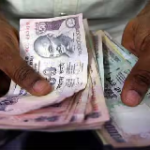A suspended trainee Indian Administrative Services (IAS) officer has received interim protection from arrest in a case filed by the Union Public Service Commission (UPSC), which accused her of fraudulently exceeding the permissible number of attempts to pass the prestigious examination. The Delhi High Court has granted Khedkar relief from arrest until September 5. During the hearing, Khedkar also challenged the UPSC’s authority to disqualify her.
Khedkar, who shot to limelight allegedly for making VIP demands during her training, faces serious allegations not only of cheating but also of using fake OBC and medical certificates to secure her IAS position despite her low rank.
On July 31, the UPSC canceled Puja Khedkar’s candidature and barred her from future exams. However, Khedkar argued in the Delhi High Court today that once she had been selected and appointed, the UPSC no longer had the authority to disqualify her. She asserted that any action against her should be taken solely by the Centre’s Department of Personnel and Training (DoPT).
In response to the allegations of using fake documents and committing fraud, Khedkar submitted a four-page reply refuting the charges. She claimed that she had neither altered her first name or surname from 2012 to 2022 nor misrepresented her identity to the commission. She also claimed that she did not forge any documents.
“That there has been no change in the applicant’s first name and surname, from 2012 to 2022, as consistently reflected in all DAFs. The applicant has not manipulated or misrepresented her name to UPSC. All other details, including academic certificates, Aadhaar card, date of birth, and personal information, have remained consistent in the DAF,” she told the court.
In a response submitted on August 20, the UPSC opposed Puja Khedkar’s request for pre-arrest bail, arguing that custodial interrogation is necessary to uncover the individuals involved in the scheme that facilitated her provisional selection in the CSE-2022.
The commission emphasized the severity of the alleged fraud, describing it as unprecedented. They stated that the deception was not only a violation against the commission—whose reputation for integrity is unmatched—but also a betrayal of the public’s trust, including the faith that citizens place in the commission’s credibility.



